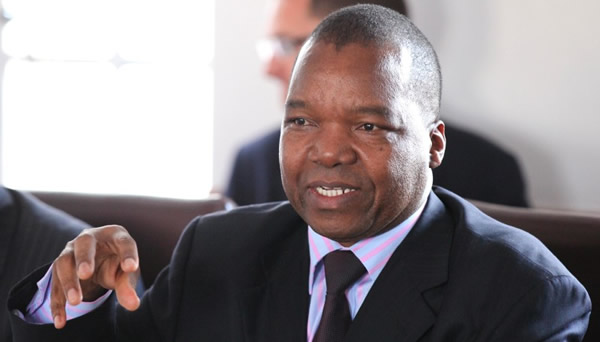
The Sunday Mail

Persistence Gwanyanya —
THE Reserve Bank of Zimbabwe (RBZ) recently increased the bond notes withdrawal limit in what could be seen as an early Christmas present for the banking public.
The daily bond notes withdrawal limit was increased to $100 per day or $300 per week from $50 per day or $150 per week. This review comes on the backdrop of serious cash challenges typified by unending queues at different banks, which led many to question the potency of bond notes as a measure to address the country’s cash crisis.
The increase in the cash withdrawal limit could be seen as part of the RBZ approach to drip-feed the market with bond notes in a measured manner that does not spark inflation.
Importantly, the market should embrace the cash withdrawal limit review with the full knowledge that solving the country’s cash challenges is not a one day job, neither does it need monetary interventions alone.
There would be need to rebalance the real economy towards increased production and exports whilst reducing consumption and imports. The said efforts should be supported by measures to curb corruption which has seen externalisation reach disturbing levels.
The increase in bond notes withdrawal limit was effected at a time when electronic transactions are on the increase. RBZ reports that the value and volume of payments processed through the National Payment Systems in the third quarter ending September 30, 2016, increased by 4 percent and 20 percent on previous quarter respectively.
A total of 94,84 million transactions valued US$15,69 billion were processed in the third quarter of the year compared to 78,85 million transactions valued at US$15,08 billion in the previous quarter ended June 30, 2016.
RTGS and mobile payments continue to dominate the electronic transactions at US$12,22 billion and US$1,56 billion with the increase in volumes transacted on the two platforms of 25 percent and 15 percent recorded from the previous quarter respectively.
These statistics demonstrate that the market is increasingly warming up to electronic platforms and the growth in small value transactions is also telling.
It is arguable that the increased uptake of electronic money coupled with recent upward review of the bond notes withdrawal limit and the reduction in cash withdrawal fees, will provide some relief to the generality of Zimbabweans during the festive season.
However, all these factors would be weighed down by the failure of the operating systems of the service providers to cope with increased volumes.
There is definitely need for individual banks to enhance their operational capabilities which would also require investment in efficient information technology infrastructure.
Needless to emphasise that developing this efficiency will largely depend on infrastructure sharing, which RBZ would ably drive given the different views that banks could have on the approach.
Whilst increased usage of electronic money should be the major thrust in solving the country’s cash crisis, we cannot pretend as if we don’t know that there is a constituency which will insist on cash transactions no matter how well the idea of plastic money is sold out.
These are the kind of people who sacrifice to sleep in a queue for cash to purchase goods in a shop next door, which they could have bought electronically. It is arguable that setting the daily cash withdrawal limit has not been the best approach to managing the cash situation in the current circumstances.
There may be need to move to monthly cash withdrawal limits as a way to minimise the frequency of customer visits to the banking hall.
A more appropriate limit would be guided by the average monthly earnings in Zimbabwe, which would be between US$500 and US$1000.
It is also advisable that if the banks are to import cash, it should be in small denominations such as US$1, US$2 and US$5 to discourage occurrence of externalisation.
Whilst payments on the mobile banking platform have been on the increase, there would be need to further develop this payment alternative.
In some cases, mobile based transactions have proved to be a more efficient and convenient to certain sections of the society. However, in some cases, the uptake of mobile based transactions is weighed down by the high levels of associated costs.
This is mainly the issue with e-payment systems such as EcoCash, One Wallet and Telecash.
Today the market decries the low levels of development of mobile banking as a number of banks are still not linked to the mobile telephone payment platforms. The risk associated with system interoperability could be the biggest issue hindering this linkage.
This makes the development of an appropriate regulatory framework for electronic payments, which minimises the attendant risk whist allowing banks to capitalise on advantages of system interoperability among others, more urgent.
All the above outlined measures to improve the country’s cash situation are short-term.
There is need to realise that Zimbabwe’s cash challenges will not disappear just by introducing new monetary measures or enhancing the payment platforms.
A permanent solution to the country’s cash crisis lies in measures to grow the real economy.
There is need to reindustrialise the country so as to boost production and exports. But this requires significant amounts of capital. FDI would be the most viable option given the cash constraints in the domestic sector typified by high levels of dissaving (-8 percent in 2015).
Efforts to reindustrialise the country should be complemented by measures to minimising the leakages of liquidity through imports and externalisation.
Needless to mention that if corruption continues unchecked, it will be the major risk to economic rebuilding in Zimbabwe.
Clearly, the challenges that confront the country today are tough and require us to summon a new spirit of hard work, honest and sacrifice.
I will end by wishing a merry Christmas and a Happy New Year!!
Persistence Gwanyanya is an economist and banker. He is also a member of the Zimbabwe Economics Society who writes in his personal capacity. Feedback: [email protected] <mailto:[email protected]> and WhatsApp +263 773 030 691.



